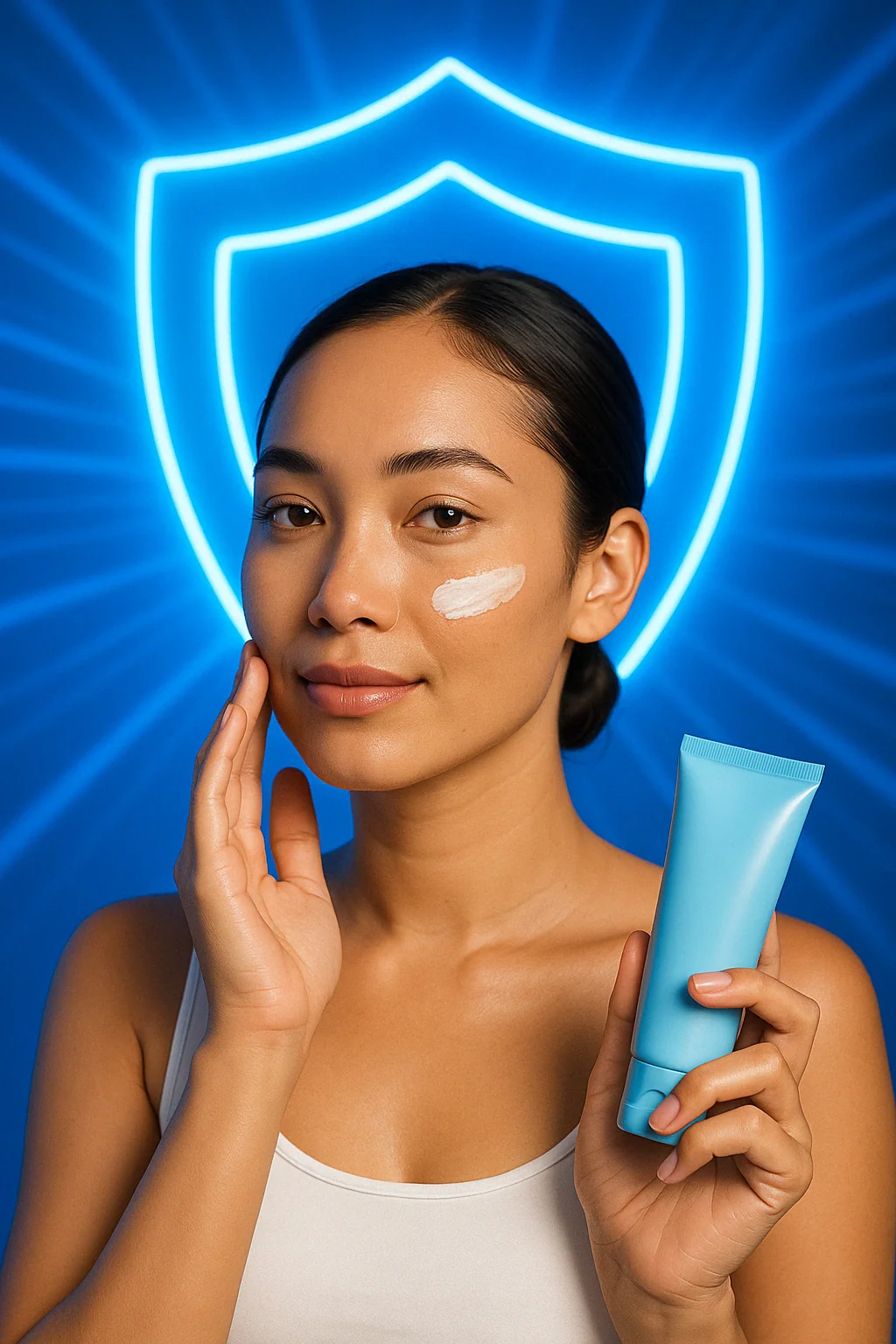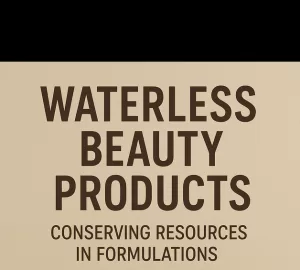In our tech-driven world, digital screens are an integral part of daily life. From smartphones and tablets to laptops and smart TVs, we’re constantly bathed in the glow of blue light. While the health impacts of screen time on our eyes and sleep are well-documented, there’s growing concern over how this high-energy visible (HEV) light affects our skin. This is where blue light protection in skincare steps in as the new frontier in digital age beauty.
What is Blue Light and Where Does It Come From?
Blue light, or high-energy visible light, is a portion of the visible light spectrum emitted by the sun, LED lighting, and digital screens. Though it’s less intense than UV rays, blue light penetrates deeper into the skin, potentially causing long-term damage.
How Blue Light Affects the Skin
Recent studies have shown that prolonged exposure to blue light can lead to:
- Premature aging due to oxidative stress
- Hyperpigmentation and uneven skin tone
- Skin inflammation and barrier damage
- Collagen degradation, leading to fine lines and wrinkles
These effects make blue light an emerging concern, especially for people who spend long hours in front of screens.
Enter Blue Light Protection in Skincare
Just as SPF protects against UV rays, modern skincare is adapting to include ingredients and technologies designed to counteract blue light. Brands are now integrating blue light filters, antioxidants, and barrier-repairing ingredients into serums, moisturizers, and sunscreens.
Key Ingredients Offering Blue Light Defense
Here are some of the most effective ingredients in blue light protection skincare:
- Niacinamide (Vitamin B3): Reduces inflammation and strengthens the skin barrier
- Lutein: A carotenoid antioxidant known to absorb blue light
- Iron Oxides: Often found in tinted sunscreens; blocks visible light
- Algae Extracts: Protects against oxidative stress and environmental damage
- Vitamin C: A powerful antioxidant that brightens and protects skin cells
Tinted Sunscreens: Double Duty Defense
Sunscreens with iron oxides are highly effective in defending against visible light, including blue light. They’re especially beneficial for people with melasma or hyperpigmentation, as blue light can worsen these conditions.
Who Needs Blue Light Protection the Most?
While everyone benefits from a protective skincare routine, certain groups are particularly vulnerable to blue light damage:
- People with darker skin tones, who are more prone to hyperpigmentation
- Remote workers and gamers, who face extended screen time
- Beauty enthusiasts and influencers, constantly exposed to studio lights
How to Incorporate Blue Light Protection into Your Routine
It doesn’t take a full skincare overhaul. Here’s how to start:
- Start your day with a blue-light protective serum.
- Use a broad-spectrum SPF with iron oxides.
- Add an antioxidant-rich moisturizer or facial oil.
- Reapply sunscreen, especially during extended screen sessions.
- Limit screen time or use screen protectors that filter HEV light.
Final Thoughts: Is Blue Light Protection Necessary?
Though research is still evolving, dermatologists increasingly support adding blue light protection to your skincare, especially given our screen-saturated lifestyles. Think of it as the new SPF for digital wellness. Preventing damage before it starts is always better than reversing it later.
Bottom Line: In the age of tech, blue light protection in skincare isn’t a gimmick—it’s a smart step toward holistic skin health. With screen time on the rise, protecting your face from digital rays is just as crucial as shielding it from the sun.
Want to stay ahead in the skincare game? Make blue light defense your new daily ritual.
Frequently Asked Questions
Not currently proven. Blue light is not as energetic as UV, but it may accelerate aging and pigmentation.
No. Only tinted sunscreens with iron oxides block visible light, including blue light.
Yes, most products are formulated to be gentle. Look for non-comedogenic and fragrance-free options.
Yes, if it contains iron oxides. Tinted moisturizers and foundations can offer mild protection.
Far less than from the sun, but proximity and prolonged exposure can add up over time.
Generally, no. These products are safe for daily use and often enhance overall skin health.
Popular search term:
Personalized Skincare Innovations | Inclusive Beauty Brands | Beauty Gadgets | Holistic Beauty







